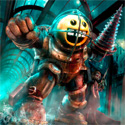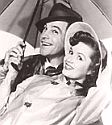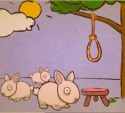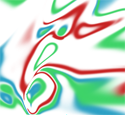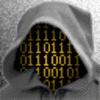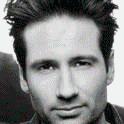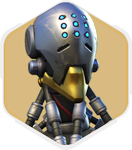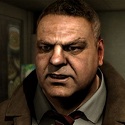|
Skellen posted:Finished The Painted Veil, by Somerset Maugham, last night. It's a quick book, finishes in just a couple of sessions, but the story and characters are fully and richly developed. Maugham uses a sort of minimalist approach to writing. Maybe that's not the right word. It's not bloated or in need of editing, every word and phrase has its place and it works really well. Very vivid, sad, sort of uplifting read. I'll have to continue on and read some more of his books, seems to be a fantastic author. The Razor's Edge is an excellent read. I've never read any other Maugham so I can't really compare but I enjoyed it immensely. Also, The Painted Veil was turned into a really good movie
|
|
|
|

|
| # ? Jun 7, 2024 18:57 |
|
Just finished up The Breach by Patrick Lee. Overall it was a pretty good book, and kept the pace going very well throughout. The ending was a bit Still, it was worth the read if you like x files kinda books.
|
|
|
|
Just finished Beloved by Toni Morrison. Highly affecting portrayal of the deep effects of slavery. Beautifully written, it recounts the haunting of house and mind by a murdered daughter. Along the way it discusses attitudes to slavery and freedom, the meaning of bondage and the crippling effects of servitude on a community long after slavery has ended. In the end, it leaves you with an powerful imprint of cruelty and prejudice, suffering and fear, but also with a sweet taste of humanity and hope.
|
|
|
|
urbancontra posted:I finished it tonight! Many thanks, urbancontra. My guess is that I'll come out more or less where you have, but I think I'm going to give this one a go. One of the Amazon reviews contrasted it with Dune by saying that Messiah was for "pot smoking philosophy majors only" - hell, who can resist a pitch like that? I have a few others in the queue, so it may be a while before I get to it, but when I do I'll come back and share my impressions as well.
|
|
|
|
I just had to add that if you read Messiah and are disappointed, read Children of Dune next. I'm about a quarter of the way through and it feels a lot more like the first book.
|
|
|
|
Just finished Child of Fire by Harry Connolly as recommended by some people in the Dresden Files thread. Definite similarities between the two authors, but the tone and style are different enough to not be an issue for me. And for a first novel it's pretty good, a hell of a lot better than Butcher's novel. Lot of fun. Looking forward to the next one.
|
|
|
|
Finished My Name Is Red by Orhan Pamuk. A great murder mystery and love story set in 16th century Istanbul with multiple characters providing narration, some of whom happen to be inanimate objects or animals. The opening paragraph did enough to capture my attention and from then on in I was hooked: quote:"I am nothing but a corpse, a body at the bottom of a well. Though I drew my last breath long ago and my heart has stopped beating, no one, apart from that vile murderer, knows what’s happened to me. As for that wretch, he felt my pulse and listened for my breath to be sure I was dead, then kicked me in the midriff, carried me to the edge of the well, raised me up and dropped me below. As I fell, my head, which he’d smashed with a stone, broke apart; my face, my forehead and cheeks, were crushed; my bones shattered, and my mouth filled with blood." The themes of style in painting (individualism), painting from life rather than from the imagination, and the threat of fundamentalism are ever present and the author manages to weave these into the narrative in a skilful manner. Having read Snow by the same author a few years ago and thought it was nothing special I now realise why Pamuk is held in high regard by many and I plan to read more by him soon.
|
|
|
|
A few days ago I completed Cutting for Stone by Abraham Verghese - NY Times review It's for the most part a really good book. It hits on several interests of mine such as medicine, particularly in the developing world, and history. It's also is an interesting coming of age story, and hits on some religious themes. It's an easy read, using accessible language except maybe for medical jargon. Some of the characters are fantastic, but there was one I really disliked and she wasn't even meant to be disliked. It's quite long so it's good for a long plane trip, or commute. My main criticism is that the end seemed a little too neat, and for siamese twins the narrator didn't seem at all close to his brother. This is somewhat explained, but any attempt Verghese made to make them seem close just came of as slightly contrived.
|
|
|
|
wickles posted:Finished My Name Is Red by Orhan Pamuk. A great murder mystery and love story set in 16th century Istanbul with multiple characters providing narration, some of whom happen to be inanimate objects or animals. I have his latest novel, The Museum of Innocence, on my to-buy list once it goes to paperback. Have you read that as well and would you recommend it too? Maybe I'll start with this... Thanks!
|
|
|
|
Had midterms and couldn't read as much as I wanted to. Finished A Study in Scarlet by Doyle. It was very strange to read the book in the context of what most contemporary plot based detective stories have become (either in television or literature) and in that respect it's interesting to see quite what noir was a rebellion against. As an actual book it's pretty hopeless, though. It has aged badly and some things really harm the book when you try to read it in 2010. Characters tend to "ejaculate" speech, the interior wonderings of Watson are absolutely ridiculous. Also, the second half is not how mysteries/detective fiction work today, which shouldn't bug you but probably will. Avoid it unless you're interested in the evolution of crime novels. I don't really want to talk about Pale Fire, which came afterward. I'm almost half way into Invisible Cities by Italo Calvino now and it's fantastic. I can't wait to get to more "Cities and the Dead" sections.
|
|
|
|
Bohemienne posted:I have his latest novel, The Museum of Innocence, on my to-buy list once it goes to paperback. Have you read that as well and would you recommend it too? Maybe I'll start with this... Thanks!  But many, myself included, love it. I guess you have to approach it with an open mind seen as though it's set at a time and in a culture completely alien to most of us. The Museum of Innocence is on my to-buy list too, but I'll probably read a few more of his early books before that's out in paperback. Also this is the article which made me pick the book off my shelf where it had been for a year or 2.
|
|
|
|
Been postponing reading something from New Zealand authors for an age (thought I'd sealed it by moving to the other side of the planet), but I guess curiosity got the better of my indifference, and I opted for Katherine Mansfield's short story collection, The Garden Party. Ended up enjoying it more than I expected to; the best of them have an almost ruthless incisiveness in so far as once she'd got what she wanted, the story just cuts off dead. A little jarring maybe, but by the same token she sheds a hell of a lot of deadweight storytelling. The only thing marring them is her really obvious, though pretty understandable, self-conciousness in terms of class; the stories swing between a writerly faux English snobbery on the one hand and rose-tinted nostalgia for New Zealand's backwater simplicity. Something she would've grown out of, but alas, she died young not that long after it came out so you just have to chalk it up under what-might-have-been. Also Janet Flanner's first volume of Parisian articles for the New Yorker, Paris was Yesterday. Written from when she signed on as the Parisian correspondent in the 20's up to the start of WW2, it functions as a general overview of French culture told through small snippets, usally a page or two on notable people and scandals. Mostly couldn't give a toss about true crime stories, but strangely enough, even competing with all the ridiculous extravagance of Paris' upper classes, the articles on famous criminal trials are really engrossing. Even the financial scandals feature an old woman breaking out of jail, wandering down to the local bistro to end her hunger strike, posting notice to the Ministry of Justice that she was sueing them and then strolling back to the front gate of the prison that hadn't even noticed she'd gone. Somebody should really tell this poo poo to Bernie Maddox - that's how you cross the line between pariah and folk hero. Other than that was the first half of Hilary Spurling's biography of Matisse, The Unknown Matisse, which was kind of hit and miss for me. She's incredibly thorough and you'll come away from it knowing more than you'll ever need to about Matisse, but on the other hand her writing itself is fairly pedestrian and she buys into the whole weird Picasso vs Matisse grudge match that their followers have been carrying on for the last century. By the time it cuts off at about 1910ish, you get the feeling she's almost bursting a blood vessel from the sheer effort of not painting Picasso as a cartoonish villian.
|
|
|
|
Pirate Freedom by Gene Wolfe - Similar in style to his previous effort The Wizard Knight. A priest recalls his "past life" as a pirate in the Caribbean. Pretty good, though definitely not Wolfe's best stuff by any means. Mr. Vertigo by Paul Auster - A young kid in 1920s Kansas becomes apprenticed to a mysterious showman and makes a name for himself by performing feats of levitation. First time reading anything by Auster - wanted to start with his New York trilogy, but the library didn't have that. I enjoyed it, but it definitely seemed lacking a bit of something. Walt is an interesting character and Auster can turn a phrase with the best of them, but I feel like the message he was trying to get at got a bit lost behind all the "telling" how Walt spent big chunks of his life. Maybe if the book had been longer and/or not quite so rushed-feeling, it would sit better with me. Something Wicked This Way Comes by Ray Bradbury - My second Bradbury read, which I loved as much as Dandelion Wine, mainly due to Bradbury's beautifully turned prose and his ability to somehow make me nostalgic for a simpler time that was long gone before I was even born. Great stuff, and I'm definitely looking forward to reading more Bradbury as I go along. The Rabbi of Lud by Stanley Elkin - Elkin's been mentioned here and there in TBB so I decided to grab "Rabbi" to give him a try since it sounded pretty good. The story's told from the perspective of the title character, a rabbi in a small New Jersey town surrounded by Jewish cemeteries. The rabbi's wry musings on his faith and the strange turns his life has taken are entertaining, though the plot feels rather meandering, especially the whole middle portion in Alaska. I'll have to revisit it eventually, but I'd like to read some of Elkin's other books since I did enjoy his style here. The King Must Die and The Bull From The Sea by Mary Renault - There was a good thread about Renault in TBB a while back that got me interested in checking Renault out and I finally managed to find copies of these two books at the library. The two books consist of a retelling of the Greek myth of Theseus but portrays it as a straight historical story, which provides a plausible background for how the myth could have developed. I've loved Greek mythology since I was a kid, so it was very interesting to read this interpretation of the story. Very well-written and definitely some of the best historical fiction I've ever read.
|
|
|
|
Just finished The Beautiful and Damned by F Scott Fitzgerald. I read it because a) I saw it here on the list of previous books of the month... and I liked Fitzgerald's the Great Gatsby. It was not so good. Pretty boring and drawn out without a lot of plot...
|
|
|
|
I just finished A Dirty Job by Christopher Moore. This was a funny, light read. I could tell who the Luminatus about a third of the way through the book, but in Moore's book the plot is only there to provide opportunity for jokes and comedic dialogue. I would recommend this to other people with a sense of humor. This was not as funny as The Stupidest Angel the other Christopher Moore book I have read. Currently reading through Someone Comes to Town, Someone Leaves Town by Cory Doctorow and Coyote Blue, another one by Christopher Moore.
|
|
|
|
Flatland by Edwin Abbott Abbott. It's about triangles being oppressed in a heavily stratified society by circles who enforce the orthodoxy. A square narrates the tale, explaining how his life is in this 2 dimensional (technically 3?) world. It's short, and also free.
|
|
|
|
BelgianSandwich posted:Just finished The Beautiful and Damned by F Scott Fitzgerald. You happened to choose what I feel (and so far as I know, is generally agreed upon) as Fitzgerald's worst book by far. Don't let it turn you off to him, read This Side of Paradise or Tender is the Night. Even Love of the Last Tycoon unfinished is better than Beautiful and Damned.
|
|
|
|
Finished Emma by Jane Austen. Years and years ago, I started the book and couldn't get past the first 70 or so pages. The beginning (as with a lot of J.A.) is a bit slow to entice me. But once you get past that, things pick up and you become very wrapped up in what happens to the characters. I think that Pride and Prejudice is still my favorite Jane Austen book, Elizabeth is so much more down to earth and sensible than Emma. Read The Watsons and Lady Susan also by Jane Austen. The first is an unfinished work, and the second is her earliest work, but in rough format as it was never reworked and published. The Watsons had promise, it's a shame that she gave it up. Lady Susan is in letter format, and just doesn't work. Plus, the main character is an annoying bitch. Then, after that, some brain candy with Something Borrowed by Emily Giffin. This is the second book I read of hers (the other being 'Love the One You're With'), and while her books are fun... they all have the main theme of cheating. It makes you not like the characters as much as you should. ChickLit characters don't have to be realistic. Next up on my list are Sanditon (another unfinished Jane Austen work), Mansfield Park (Jane Austen again... then I will have read all her fiction), and Midnight's Children by Salman Rushdie (super awesome dude).
|
|
|
|
I just finished Life After God by Douglas Coupland. I'm going to have to read it again, as the multiple subplots are a little muddled for me, but it was a great read, and perfectly timed for where my life is right now. Plus, it's got BC references out the wazoo, so it made me wonderfully homesick. I'm so addicted to Coupland right now, it's retarded.
|
|
|
|
Skavoovee posted:I just finished A Portrait of the Artists as a Young Man by James Joyce. Parts of it dragged for me, but overall I enjoyed it quite a lot. The one part that completely held my attention was that 4-5 page spiel about Hell. That scared the poo poo out of me. And not jumpy-House-of-Leaves-bump-in-the-night scary, but legit scared to my core. Thank god I'm agnostic or something and don't believe in that, phew. I just wanted to comment on this because I thought your reaction was interesting. When I read that section I felt it dragged on, but you felt much like how Stephen and the other students must have felt; the reaction that the priest wanted to provoke. Your reaction was basically what the priest intended to happen in Stephen and the other boys - that is, provide an example of the overwhelming and terrifyingly powerful rhetoric of the Catholic church that Stephen eventually comes to reject.
|
|
|
|
I just finished The Steel Remains by Richard Morgan. It was the first Richard Morgan novel I enjoyed – and finished. I really liked the overly violent battle scenes and, especially, the raunchy gay sex; but more than that, I actually found the plot compelling and the characters interesting (well, 2 of the 3 main ones, anyway). As far as minor characters go I loved Seethlaw and the emperor, Jhiral(?), and am pleased to hear the latter will be in the second book. It comes out this year, can't wait
|
|
|
|
Just finished a book I started at the beginning of the year; King of the World by David Remnick. The book focusses around the two fights Ali fought against Sonny Liston but the scope of this book is wide enough that all the other issues of the time are tackled too (upbringings of the protagonists, civil rights, Nation of Islam, Malcolm X). Remnick does a good job of placing the reader in the time and place when boxing and historic events intertwined and the resulting narrative is informative, intelligent and entertaining. This is a book for sports fans and non-sports fans alike, and for people who know nothing about Ali. There are key photographs at the beginning of each chapter and the cover is just loving cool: 
|
|
|
|
Just finished Neuromancer. I tried to ignore the hype and the tons of nerd-praise heaped on the novel but it was almost impossible. I never realized just how much this book had influenced other writers, movies and popular culture; it really seems ahead of its time and has aged very well (a few references to cassette tapes aside). I frequently had visions of the Matrix's keymaster in my head. Gibson really has a knack for descriptions, whether it be things like what pain and drugs feel like or catchy descriptions of colors and general atmosphere. My only complaints were that the book seems to meander a bit from time to time, almost lapsing into a steam of consciousness  style of writing, and I didn't like the final sentence, it reminded me of a middle school short story "And then he woke up and it was all a dream" style of writing, and I didn't like the final sentence, it reminded me of a middle school short story "And then he woke up and it was all a dream"
Syrinxx fucked around with this message at 23:52 on Feb 17, 2010 |
|
|
|
Just finished Torch of Freedom by David Weber/Eric Flint. If you enjoy reading Weber's Honorverse you'll like this book. This book is one of the supporting stories not the "main spine/characters" of the series.
|
|
|
|
Finished Ken Kesey's Sometimes a Great Notion on Monday; it took a good while to dig through. It's one of those books that you get wholly absorbed in - which I wouldn't have expected from a book about loggers in Oregon. Lots of switching between the past and present and points of view of different characters, sometimes mid-paragraph, sometimes mid-sentence. Very Faulkner-esque in a lot of ways. Also finished Nabokov's Invitation to a Beheading, which was very surreal and absurd. I'm not sure I fully got it, but I did enjoy it.
|
|
|
|
Finished Invisible Cities by Italo Calvino. I really liked it overall but it did start to drag at the end. There used to be this entire school of literary theory on "space" and this was something I should have been assigned during one of those classes. I guess the theory still exists but has been squashed in favor of trauma theory (which, at least in my department, is absolutely everywhere) so I have no way to use this as one of the independent books. My favorite of the cities was probably Maurilia. That one was described as being a new city in the same place as the old city, with no way of telling the two apart because they still had the same name. This one is highly recommended, and it's also short enough to read in a day. Juliet, Naked by Nick Hornby, on the other hand, was garbage. The dialogue is impossible. I don't really know how else to describe exchanges like: "Sounds like I should buy that CD." "Don't bother. That's what gets me. I played it, and he's completely wrong. And for some reason I'm bursting to say so." "You should write your own review and stick it up next to his." "Oh, I'm not an expert. I wouldn't be allowed." "They need someone like you. Otherwise they all disappear up their own bottoms." I understand that certain parts of that are English diction, certain parts are character two's misunderstanding (intentional) of posting on a message board, and some parts are just not how people speak. It wouldn't be so harmful if the internal monologue wasn't so boring. I'd say that you should avoid the book unless you really like Bob Dylan and want to read a thinly veiled fictionalization of his last 20 years. Got no clue what I'm reading next. Anyone want to recommend something?
|
|
|
|
Chamberk posted:Also finished Nabokov's Invitation to a Beheading, which was very surreal and absurd. I'm not sure I fully got it, but I did enjoy it. I'm with you here. I'm still trying to figure it out. I might have to read it again. It was my first of Nabokov's and I was completely enchanted by it. Perhaps I'll read some more of his stuff and come back to it.
|
|
|
|
Vicious Owl posted:I'm with you here. I'm still trying to figure it out. I might have to read it again. It was my first of Nabokov's and I was completely enchanted by it. Perhaps I'll read some more of his stuff and come back to it.
|
|
|
|
vegaji posted:I think it's one of his best novels. As one of my professors says, you can't read Nabokov -- you can only reread him. Read it again and look at indicators of the passage of time, the most obvious being the pencil and the spider. Also, like all of Nabokov's novels, the role of art and forging it. I think I'm going to reread it next week, it is such a weird and wonderful piece of writing. In the foreword to the edition I have Nabokov said when reading it years later he didn't feel the urge to alter it at all. Its the closest thing I've read to perfection since, well, I can't remember anything more perfect. I will just have to take your professor's words to heart and read it multiple times to find new meaning in it and fully understand it. Literally before I even closed the book on the last page, I though woah, definitely have to read that again, soon, perhaps immediately. I mean I have no experience with Nabokov, but I'm glad I started here.
|
|
|
|
vegaji posted:I think it's one of his best novels. As one of my professors says, you can't read Nabokov -- you can only reread him. Read it again and look at indicators of the passage of time, the most obvious being the pencil and the spider. Also, like all of Nabokov's novels, the role of art and forging it. I think I'm going to reread it next week, it is such a weird and wonderful piece of writing. How are Nabokov's other works, in comparison to Lolita? I read it because of the constant raving I hear about it from SA, and it was my first experience with Nabokov, but I actually didn't enjoy it that much. I can usually finish a 200-300 page novel within a couple of weeks, but Lolita literally took me a couple of months to get through, just because I found it so uninteresting (this isn't a troll). One other reason was perhaps that with every chapter, I felt like I needed a dictionary right beside me the whole time to look up a word he'd used every other sentence. I mean, I'm all for eloquently written, intelligent prose, and I love English academically, but I recall finding Lolita very hard to swallow at times, which subtracted from the experience for me. Are all of Nabokov's books similarly written?
|
|
|
|
I just finished The Sheriff of Yrnameer by Michael Rubens. Sci Fi humor in the mold of Douglas Adams. Some people have criticized him for that, but I found the book really entertaining, funny and the story well done. I zipped through it. Liked the characters and the story wasn't predictable. Definitely recommended. Looking forward to his next book.
|
|
|
|
Anunnaki posted:How are Nabokov's other works, in comparison to Lolita? I read it because of the constant raving I hear about it from SA, and it was my first experience with Nabokov, but I actually didn't enjoy it that much. I can usually finish a 200-300 page novel within a couple of weeks, but Lolita literally took me a couple of months to get through, just because I found it so uninteresting (this isn't a troll). What kind of a book are you looking for, or what genres/authors do you enjoy? I can maybe think of something Nabokov has written, whether it be short story or a novel, that can maybe fit.
|
|
|
|
vegaji posted:What kind of a book are you looking for, or what genres/authors do you enjoy? I can maybe think of something Nabokov has written, whether it be short story or a novel, that can maybe fit. Well, to be honest, I'm not too keen on needing to reread a book to fully appreciate it, so judging from the comments here, perhaps Nabokov just isn't for me. That said, I'm not really into any specific genre; if it's a good book, I'll likely enjoy it (unless there's some very specific thing that is unavoidably annoying, such as Lolita's dense language and (in my opinion) slow-moving plot). I don't want to go into a whole E/N self-description, but if there are any books I'd imagine Nabokov to write similar to, it's Fyodor Dostoevsky's The Karamazov Brothers. I loved that book because of the Royal Tenenbaums feel it has.
|
|
|
|
I just finished Ender's Game for the first time (I know, I know). It's been a gap in my reading list for years and I finally got around to it. A friend of mine said I wouldn't enjoy it as much as I would if I had read it as a kid / teenager, though I still really liked it. What about the sequels? Are they good / necessary?
|
|
|
|
Return to Sender posted:I just finished Ender's Game for the first time (I know, I know). It's been a gap in my reading list for years and I finally got around to it. A friend of mine said I wouldn't enjoy it as much as I would if I had read it as a kid / teenager, though I still really liked it. I've seen goons recommend Ender's Shadow as the best "sequel". I read Speaker for the Dead, and while it wasn't a bad read, it didn't engender a desire to continue on in the series. Edit: Maybe post in the recommendation thread.
|
|
|
|
appropriatemetaphor posted:I've seen goons recommend Ender's Shadow as the best "sequel". I read Speaker for the Dead, and while it wasn't a bad read, it didn't engender a desire to continue on in the series. You've pretty much answered my question. I was just wondering if they were must read and since I'm a continuity nut and must read sequels in order, I'll get around to it eventually. As of now, I already have plenty of books that need reading.
|
|
|
|
If Speaker for the Dead is any indication of the direction of the series, the sequels are very different books with a grown up version of the main character and that's it.
|
|
|
|
I liked Ender's Game, and don't want to spoil it with any of the rest of the series because it seems like anything else you do with the concept/universe would pale in comparison. The direction the ending indicated sounds really weepy and emo to me.
|
|
|
|
The Man Who Invented The Third Reich the title can be missleading but I liked it for portraying the cultural landscape of pre and post WW1 germany.
|
|
|
|

|
| # ? Jun 7, 2024 18:57 |
|
Finished up the Leandros series tonight (by Rob Thurman). It was pretty good. Had lots of humor, no weird fantasy porn orgies, and kept a plot going through the series. I am hoping to find her new book that was released in 9/09, but before that I am going to see if I can read the Shutter Island book.
|
|
|




